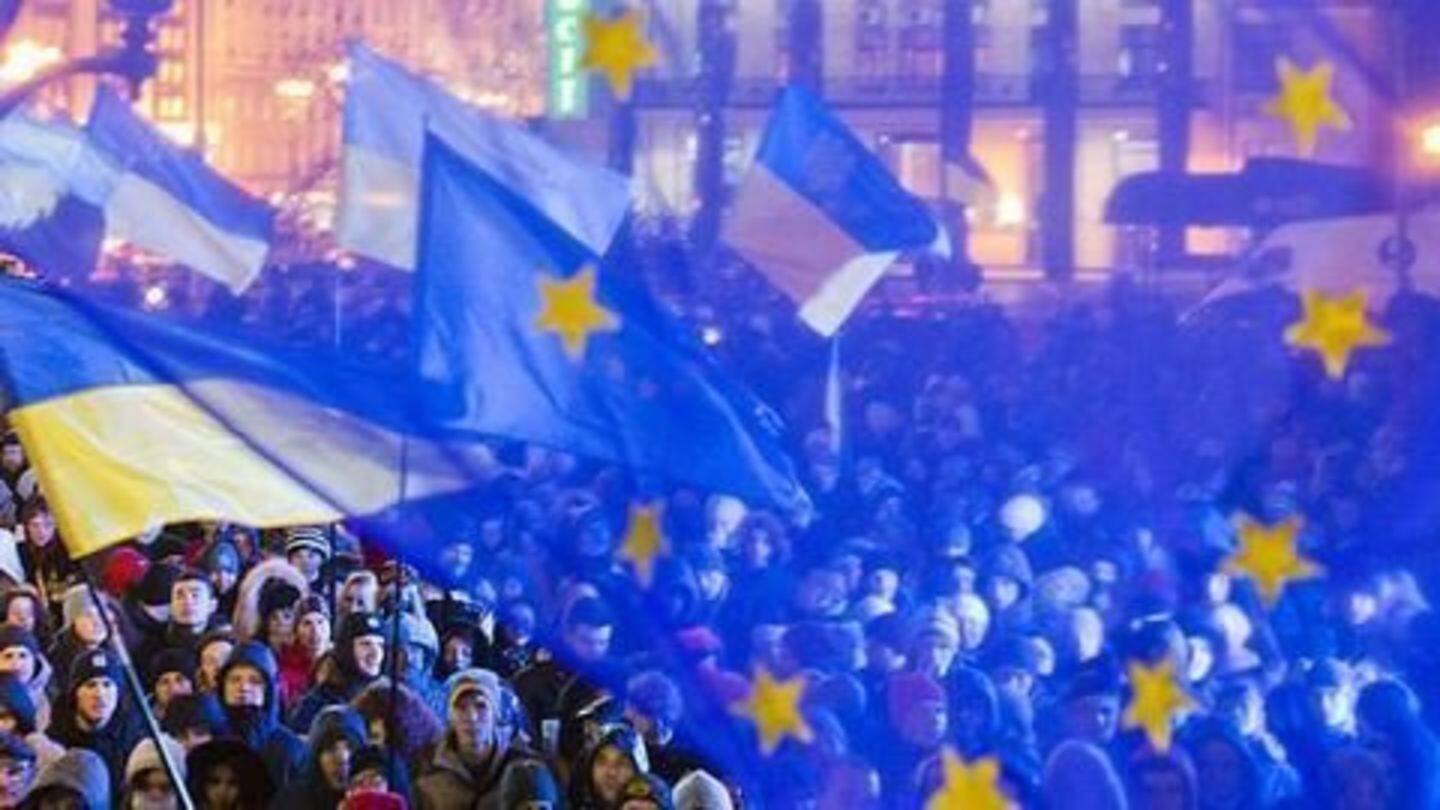
EU formally approves Ukraine association under frowning Russia's watch
What's the story
After years of wading through political turmoil, 28 EU member states formally ratified the EU-Ukraine Association agreement. The agreement which is set to enter into force on September 1 strengthens EU-Ukraine relations and integrate Ukraine's market with the EU. Ukrainian President Petro Poroshenko noted that both parties would work towards ensuring the rapid achievements of the Agreement's objectives. Read all about EU-Ukraine relations here!
Russian interference (?)
What has happened so far?
The deal was set to be signed in 2013. However, the then Ukrainian President Viktor Yanukovych pulled back under Russian pressure and widespread public protests forcing him to step down. Russia annexed Crimea soon after. Although President Poroshenko signed the deal in 2014, majority of Dutch citizens had opposed Ukraine's association in a referendum. Their concerns were later addressed, allowing the agreement to materialize.
Do you know?
What was the fix for Dutch citizens' concerns?
The Dutch government negotiated with the other 27 EU states to include a legally binding addendum agreeing that EU will not guarantee military aid to Ukraine or give it automatic EU membership.
Details
Russia objects to the EU-Ukraine agreement
Russia raises objections to the EU-Ukraine trade deal stating that, "it was an exemplary case of a situation where a free trade area worsened trade conditions for other trading partners." This was against WTO stipulations which mandate that free trade should not create trade barriers for other countries. Russia further says that the agreement violates Ukraine's older agreements with the Soviet Union.
Analysis
What does this mean?
Getting Ukraine, an ex-Soviet ally on board marks a symbolic victory for EU. While it has not guaranteed military aid to Ukraine, Russia and EU are likely to frequently lock horns over Ukraine. The Agreement lays down the foundation for long term EU-Ukraine relations in key areas. It is further expected to boost EU-Ukraine economic relations through harmonizing laws and regulations.